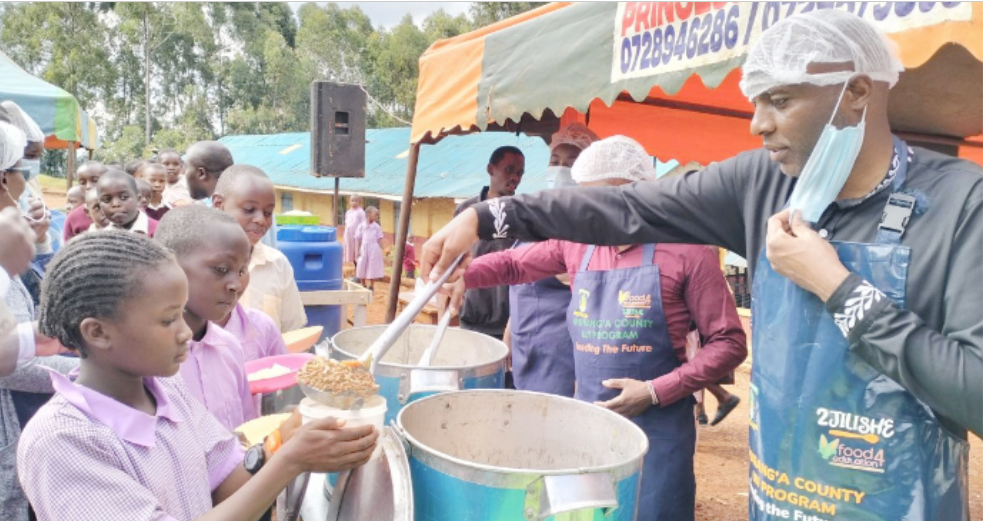

The government has launched a Sh94 million research initiative to strengthen home-grown school feeding programmes in four counties.
The three-year initiative seeks to improve procurement systems, promote local agriculture and feed more than 10 million children by 2030.
The Sustainable, Inclusive and Equitable Procurement in Home Grown School Feeding Programmes is designed to enhance access to nutritious, locally sourced meals for school-going children in Embu, Makueni, Isiolo, and Nairobi counties.
African Agricultural Technology Foundation executive director Canisius Kanangire said the initiative will strengthen Kenya's efforts to ensure children have access to healthy and sustainable diets through localised food systems.
“Through this project, AATF will work to position smallholder farmers at the centre of the home-grown school feeding strategy, using locally available, nutritious, and diverse ingredients produced through sustainable, agro-ecological practices,” he said.
Kanangire said school feeding is not only a nutritional intervention but a driver for education and community development. "Our goal is to ensure inclusive and equitable quality education and promote lifelong learning opportunities for all, while also boosting school enrollment, attendance and academic performance."
Kenya’s school meals programme has long been recognised as a model in Africa. The government’s School Meals Programme, established in 1980 and now supported under the National School Meals and Nutrition Strategy (2017–2022), currently feeds 2.6 million children daily.
According to the Ministry of Education’s 2024 Operational Plan, the goal is to scale up this number to more than 10 million by 2030, ensuring all learners in public schools can access at least one nutritious meal a day.
The Step project is being implemented in partnership with Tegemeo Institute of Agricultural Policy and Development, Tanager International and four county governments.
It was funded by Canada’s International Development Research Centre.
"The project is not just about feeding children," Kanangire said. "It’s about building resilient local food systems and empowering the communities involved. This approach will benefit not only school-going children but also stakeholders in the local food system, including farmers, aggregators, and processors.”
He echoed the vision behind the initiative with a Chinese proverb attributed to Confucius: "If your plan is for one year, plant rice. If your plan is for ten years, plant trees. If your plan is for one hundred years, educate your children."
“We are co-designing this project with government stakeholders to support continuous school attendance throughout the academic year, backed by sustainable food procurement structures,” Kanangire said.













